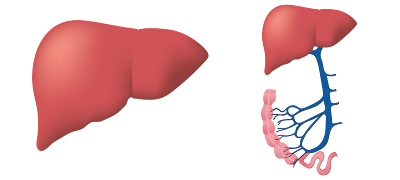What is a liver transplant?
A liver transplant is a surgical procedure that removes a liver that no longer functions appropriately and replaces it with a healthy liver.
When is it done?
A liver transplant may be necessary if the patient has:
· Liver failure
· Liver cancer
· Genetic predisposition which leads to liver diseases in children
What are the two methods of liver transplant?
Living donor transplant
A donor has to be found in a living donor transplant who has a good match with the person who needs a liver transplant. After proper tests and evaluations are done, and the transplant is approved, a portion of the liver from the healthy living person is removed and placed into the person whose liver is no longer working correctly. Transplants from living donors are recommended as they go more smoothly. This is because the livers from living donors are outside the body for a shorter amount of time.
Deceased donor liver
If there is no living donor match available, a deceased donor liver is procured. It is usually taken from a person who has suffered from brain damage after injury or stroke. The donor must be between 1-70 years of age and should have been relatively healthy before their death. The liver will regenerate in about 8-10 weeks.
Is the surgery safe for the donor and receiver?
Due to advancements in technology and medical care, this is an oft done surgery and has a very high success rate and recovery rate. The donor also undergoes surgery and may take a month to recover and resume normal activities. The liver has the unique ability to regenerate. Hence the partial livers of both the donor and recipient soon grow into complete organs.






No comments:
Post a Comment